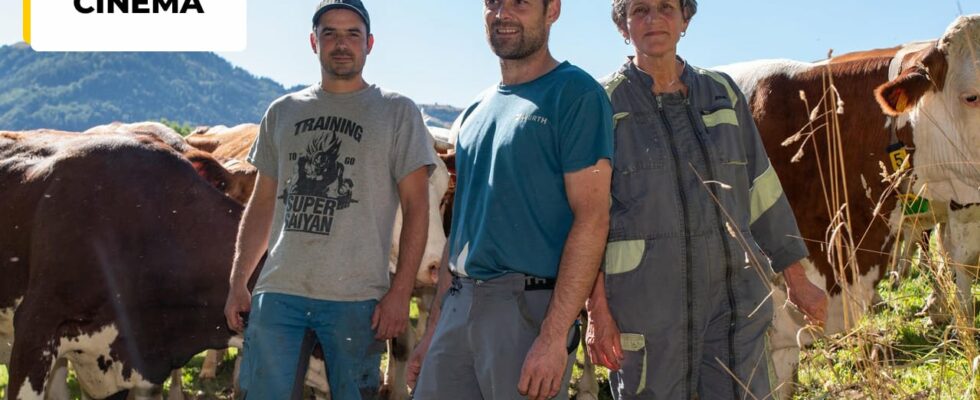An extraordinary documentary, “La Ferme des Bertrand” follows a family of farmers over more than 50 years. Deeply human, the film offers total immersion in the peasant world. Meeting with the director Gilles Perret.
AlloCiné: With The Bertrand Farm, you followed a family, or more precisely a brotherhood, of farmers over more than 50 years. Tell us about this crazy project.
Gilles Perret: It’s quite extraordinary that this farm, next to my house, is shown over 50 years and that we can see 5 generations there. It turns out that the director Marcel Trillat came to film this farm in 1972 for television, it was an event in the village at the time! I in turn took the camera to film it in 1997 for my first documentary, Three Brothers for a Life. For several years, with my partner Marion Richoux who is also co-author of La Ferme des Bertrand, we were thinking of re-releasing Three Brothers for a Life. This film was ultimately little seen outside the region and the few festivals where it won awards. While we were both thinking about releasing the film in theaters, we said to ourselves: why not continue the story since the farm is still there, in activity, and a new turning point with the departure of Hélène and the arrival of milking robots is announced…. We therefore embarked on a new film project combining the three eras, with the editor from 1997 who knew the Bertrands and their history well.
Was the idea of following the evolution of this farm over such a long period present from the beginning?
In 1997, I made this first documentary film a bit on intuition. I knew nothing about the world of cinema and I couldn’t imagine making a film again 25 years later! Even if I was already part of a long-term form since I was already using images from 1972 in 1997.
You pay particular attention to the bodies of these men. You show them young and strong, but also broken by work.
“The arduousness of the work” is one of the criteria says Patrick, one of the protagonists of the film. Indeed, we see that the work is difficult, but not only that. If André’s body is broken today, which Hélène says no longer has a shoulder or a hand, they also show a work that they love and which also brings them satisfaction.
The generation of the three brothers really suffered, they had not chosen to stay on the farm, and they had to do everything with their hands, having no capital at the start. For the next generation and today’s, it’s different, they chose the profession and mechanization alleviates certain tasks, fortunately. We hope that the film shows the complexity of the profession without dogmatism.
The elliptical construction – we jump from one era to another – offers striking dramaturgical effects. Thus we become aware that death has struck, but being supported, it is up to the spectator to make the observation.
This film covers the length, the seasons, on the scale of 50 years. Obviously we see people disappearing, others being born and the generations that follow one another. It is the cycle of life that is at the heart of the film, making it a universal film that touches people. We measure this every evening during the presentations in theaters. It’s incredible how the rural world resonates in everyone’s story. We come from there, and it’s thanks to him that we fill our plates…
What emerges from your film is a love of a job well done, but the observation is terrible: this work comes at a high price. A line resonates cruelly: “Work doesn’t kill”. And the film proves the opposite.
Cinema is image and sound. I deliberately left this scene in the film where André says this phrase, “work doesn’t kill”, while we have his worn body in the image. At another moment, André has this terrible sentence about the life of his brothers and him: “it is a success on the economic level, but a failure on the human level”. This lucidity and frankness of theirs have always encouraged me to be interested in their words and their approach. I have been around them since I was very young, and I found it important to record their testimonies, a bit of their life to share it with as many people as possible and restore visibility to the agricultural world. They and the agricultural world in general deserve it.
Do you think you will continue the portrait of this family? The new generation is already at work…
Obviously I think about it more than in 1997! I filmed a little more of the children than what we see in the film in order to be able to use these images if necessary… But in 25 years, I will be 80 years old… Maybe I will still have the force to make this film or maybe someone else will do it? We’ll see, but that would be nice…
